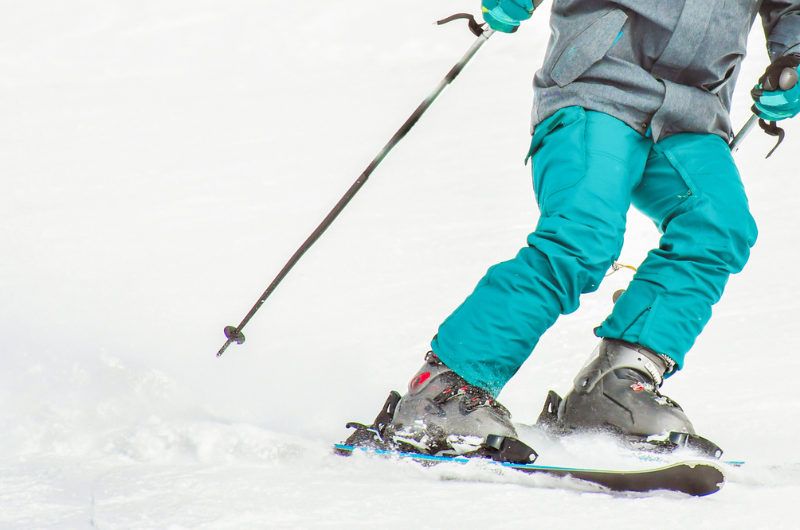What is Shin Bang? How to Avoid It

January 03, 2025
Hitting the slopes on fresh powder is fun, but repetitive motions can result in something known as shin bang.
“Shin bang is a condition experienced by skiers and snowboarders where the tibia repeatedly hits against the ski boot,” says Mitchell Stroh, D.O., an orthopedic surgeon at JFK University Medical Center. “It can result in inflammation, bruising, and pain.”
What Causes Shin Bang?
Dr. Stroh says a few factors can make shin bang more likely:
- Improper fitting boots. Boots that are too big or small can cause shin bang by either allowing the shin too much movement or putting too much continuous pressure on the area.
- Improper form. If you don’t have proper skiing form, you may lean back with your shins pushed forward, hitting the front of the boot.
- Skiing beyond your skill level. Tackling more challenging courses or terrain without the proper skills can result in poor form, accidents and shin bang.
Preventing Shin Bang
“The best treatment for shin bang is to prevent it,” says Dr. Stroh. There are many ways you can help prevent shin bang, such as:
- Get boots that fit. When you get your boots, take the time to make sure they fit well.
- Take lessons. If you are new to skiing, take lessons to learn proper form. Then, gauge which courses are best for your skill level.
- Strengthen shin muscles. Strong muscles can help provide natural cushioning.
- Wear ski-appropriate clothing. Make sure that you wear socks that are taller or designed for skiing. Most socks end mid-shin, and this can become a pressure point while skiing. You also want to avoid any bunching or seams within your boot.
Treatment for Shin Bang
If you get shin bang, it means the tibia is bruised, and you need to let it rest and heal on its own. “With rest, you should be back to normal in a week or two,” says Dr. Stroh. “You can take an anti-inflammatory and use ice to help with pain and swelling.” See your doctor if your symptoms don’t improve or you have trouble walking.
Long Term Effects of Shin Bang
Generally, if you experience shin bang, even repeatedly, you won’t have long-term consequences if you rest when you feel pain. But if you ignore the pain, Dr. Stroh says, “You run the risk of developing something more serious such as a stress fracture.”
Next Steps & Resources:
- Meet our source: Mitchell Stroh, DO
- To make an appointment with an orthopedic surgeon near you, call 800-822-8905 or visit our website.
- Learn more about orthopedics at Hackensack Meridian Health.
The material provided through Healthier You is intended to be used as general information only and should not replace the advice of your physician. Always consult your physician for individual care.







